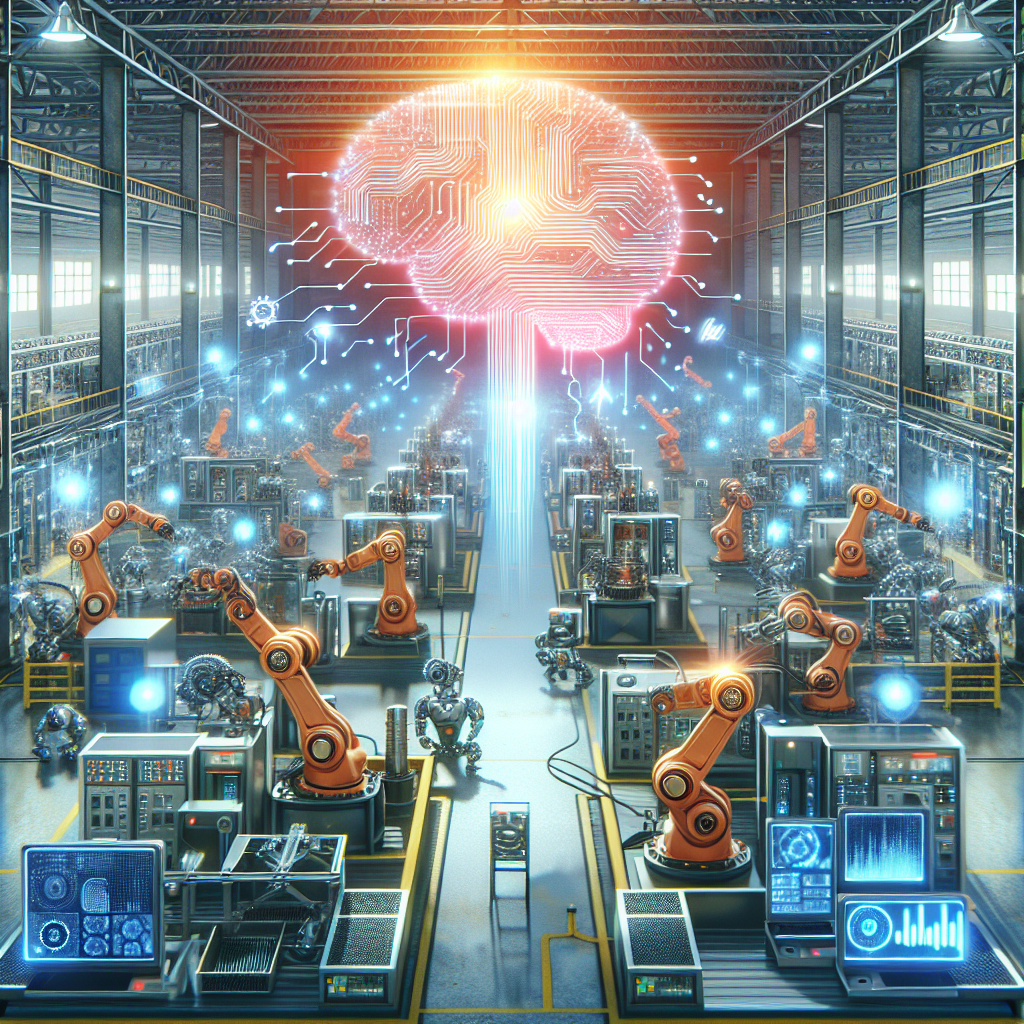In today’s rapidly advancing technological landscape, the role of artificial intelligence (AI) in smart manufacturing systems has become increasingly prominent. AI has the potential to revolutionize the way manufacturing processes are carried out, leading to increased efficiency, productivity, and cost savings. In this article, we will explore the various applications of AI in smart manufacturing systems, as well as the benefits and challenges associated with its implementation.
One of the key applications of AI in smart manufacturing systems is predictive maintenance. By utilizing AI algorithms to analyze data from sensors and equipment, manufacturers can predict when machines are likely to fail and proactively schedule maintenance before a breakdown occurs. This not only reduces downtime and maintenance costs but also extends the lifespan of equipment, ultimately leading to increased productivity and profitability.
Another important application of AI in smart manufacturing is quality control. AI-powered systems can analyze images and data from production lines in real-time to detect defects and anomalies, allowing manufacturers to identify and address quality issues before they escalate. This not only improves product quality but also reduces waste and rework, leading to cost savings and improved customer satisfaction.
AI can also be used to optimize production processes by analyzing vast amounts of data to identify patterns and trends that can improve efficiency. For example, AI algorithms can optimize production schedules, inventory levels, and supply chain logistics to minimize costs and maximize throughput. By leveraging AI in this way, manufacturers can achieve greater operational efficiency and competitiveness in the market.
Furthermore, AI can enable autonomous decision-making in manufacturing systems, allowing machines and robots to make real-time decisions without human intervention. This can lead to faster response times, increased flexibility, and improved overall system performance. For example, AI-powered robots can adapt to changing production requirements, optimize their movements, and collaborate with human workers to improve productivity and safety.
Despite the numerous benefits of AI in smart manufacturing systems, there are also challenges that need to be addressed. One of the main challenges is the integration of AI into existing manufacturing systems, which can be complex and time-consuming. Manufacturers need to invest in the necessary infrastructure, software, and training to effectively implement AI technologies, which can be a barrier for some companies.
Another challenge is the need for skilled workers who can develop, implement, and maintain AI systems in manufacturing environments. As AI technologies continue to evolve, there is a growing demand for workers with expertise in AI, data analytics, and machine learning, which can be a challenge for manufacturers to find and retain.
In addition, there are concerns about data privacy and security when using AI in manufacturing systems. Manufacturers need to ensure that sensitive data is protected and that AI algorithms are transparent and accountable to prevent potential risks and vulnerabilities.
Overall, the role of AI in smart manufacturing systems is poised to revolutionize the industry by improving efficiency, productivity, and competitiveness. By leveraging AI technologies to optimize processes, enhance quality control, and enable autonomous decision-making, manufacturers can achieve significant cost savings, increased profitability, and improved customer satisfaction.
FAQs:
Q: What is smart manufacturing?
A: Smart manufacturing is a manufacturing approach that utilizes advanced technologies such as AI, IoT, and data analytics to optimize processes, improve quality control, and enable autonomous decision-making.
Q: How can AI improve manufacturing processes?
A: AI can improve manufacturing processes by enabling predictive maintenance, quality control, process optimization, and autonomous decision-making, leading to increased efficiency, productivity, and cost savings.
Q: What are the challenges of implementing AI in manufacturing systems?
A: Challenges of implementing AI in manufacturing systems include the integration of AI into existing systems, the need for skilled workers, and concerns about data privacy and security.
Q: What are the benefits of using AI in smart manufacturing?
A: The benefits of using AI in smart manufacturing include improved efficiency, productivity, quality control, cost savings, and competitiveness in the market.
Q: How can manufacturers overcome the challenges of implementing AI in manufacturing systems?
A: Manufacturers can overcome the challenges of implementing AI by investing in the necessary infrastructure, software, and training, hiring skilled workers with expertise in AI, and ensuring data privacy and security measures are in place.

